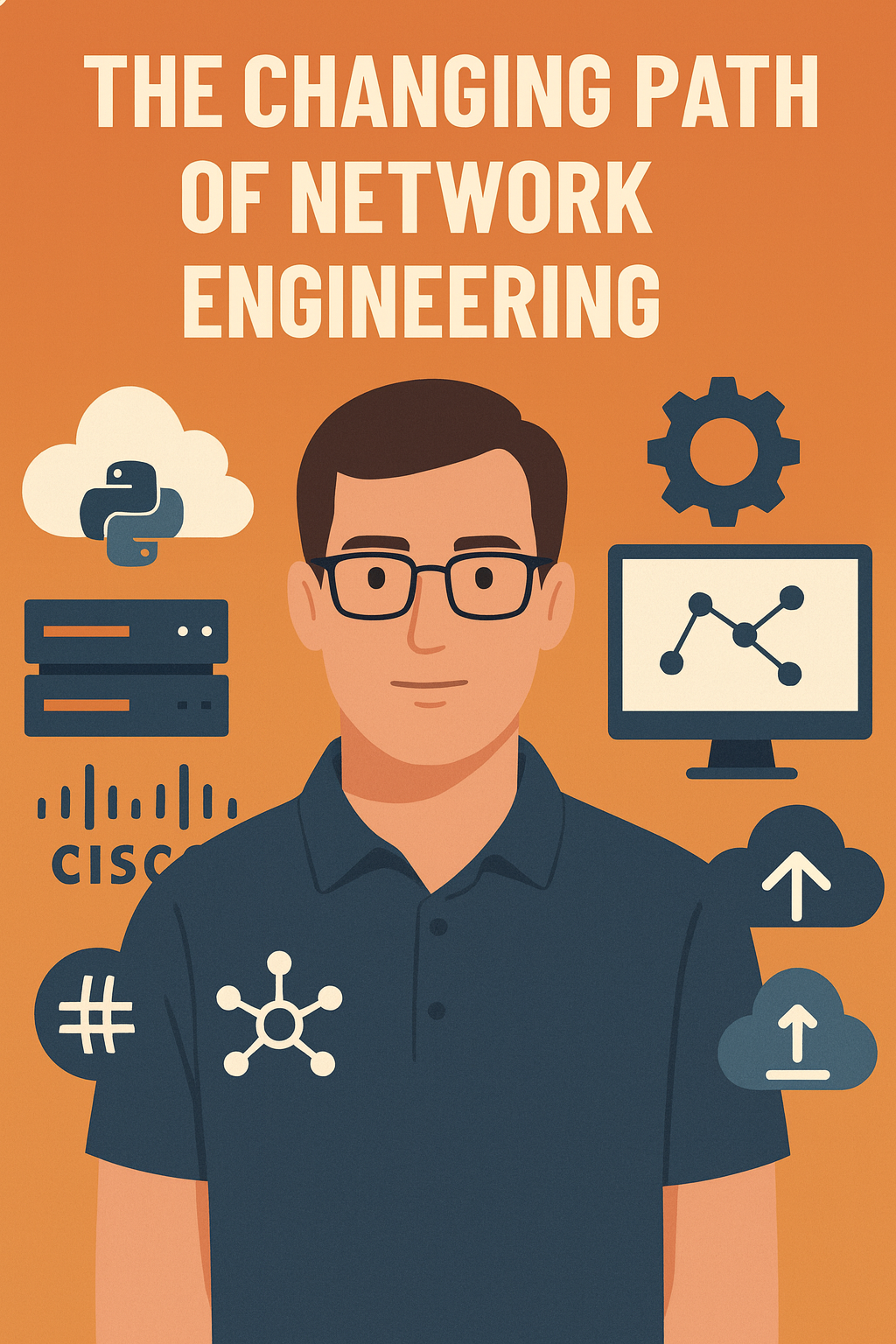In 2019, I was studying for the Cisco CCNP (Routing & Switching), but I could already feel the shift happening. On-premises infrastructure was giving way to the cloud, and cybersecurity was heating up. Getting my CCNA had opened many doors, but I had to ask myself: “Will Cisco alone carry me through the next 5–10 years?” The answer felt like no.
From 2020 onward, the market leaned heavily toward cloud professionals. DevOps roles exploded — developers building infrastructure. But underneath the buzz, networking never disappeared. Subnetting, routing, access control lists — they’re still there, just in the cloud. Add hybrid architectures and network automation, and suddenly the role of a “network engineer” looked very different.
Today, if you search “how to become a network engineer,” you’ll see Cisco, CompTIA Network+, Linux, Python, Ansible, and more. It’s no longer just Cisco. The IT industry has gotten more complex, and professionals across every specialty have to learn multiple technologies to stay competitive.
I saw this firsthand in 2021 when I interviewed for a senior network engineer role. The topics? VMware infrastructure, BGP, and Python — three very different domains. To me, network engineers have evolved into infrastructure engineers.
- So, how would I approach it today? It depends on your goals.
- If you want to work at a data center, private cloud (yup), ISP, or an organization with a big on-premises footprint, the Cisco track (CCNA, CCNP) is still worth it.
- If you’re aiming for cloud-focused companies, start with an associate-level cloud cert (AWS, Azure) and add the networking specialty for that platform.
From there, layer skills as your career develops. In 2014, network engineers were the “blue collar” backbone of IT, installing routers, switches, and firewalls on-site. In 2025, you can deploy an entire network infrastructure in the cloud and troubleshoot from your living room.
The journey isn’t as linear anymore, but that’s the point — flexibility is the new requirement.
- Here are a few sources I think are great professionals in the Network Engineering Space
- Adrian Cantrill, he has a great platform for Cloud Training (I am personally taking his courses).
- CBT Nuggets is a great source for all things Cisco and Network Training.
- David Bombal, I try to mirror him a bit. He holds a CCIE and I would consider him the best example of someone who was all in on-prem Network Engineer focused to Network & Security.
